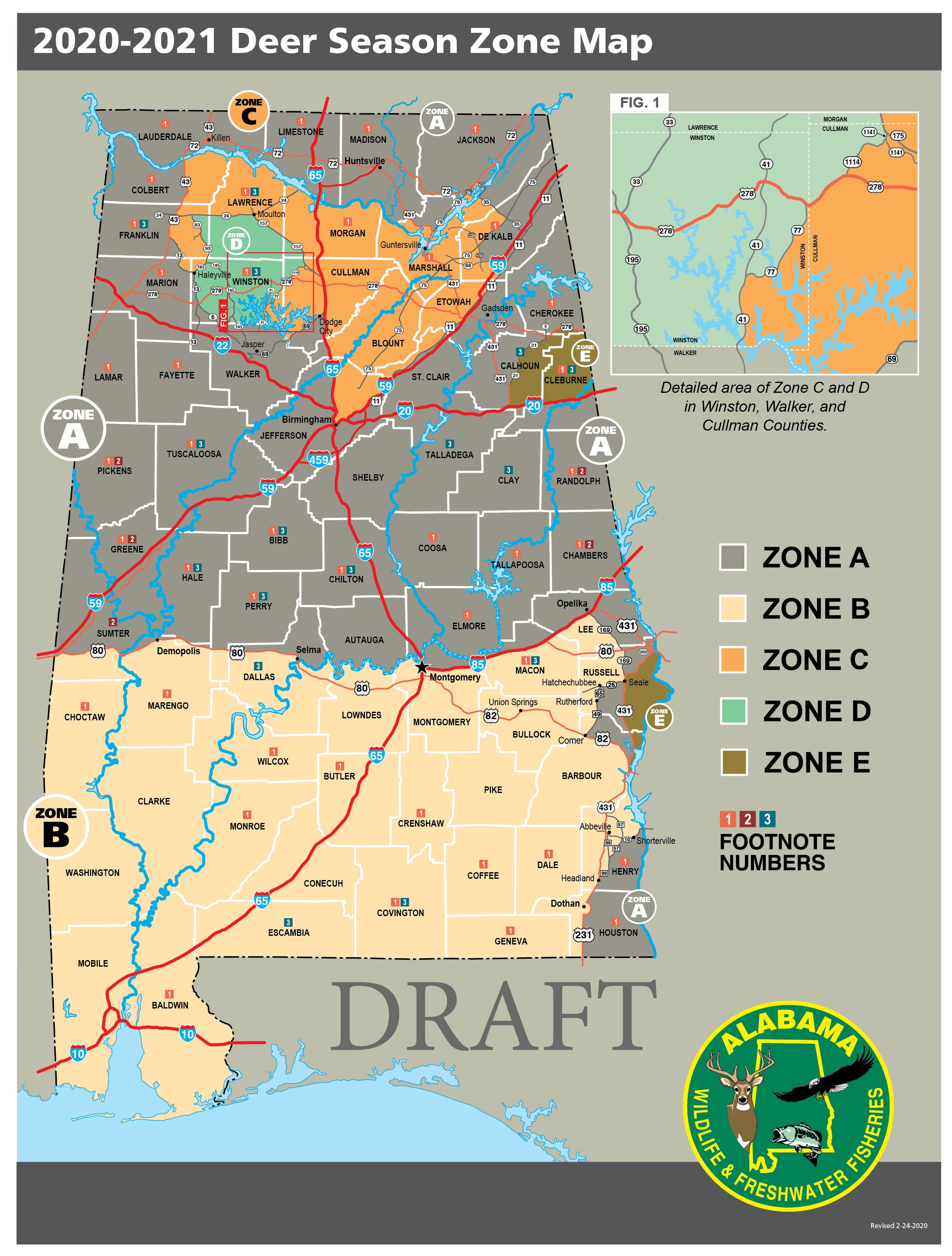By DAVID RAINER, Alabama Department of Conservation and Natural Resources
The first Alabama Conservation Advisory Board meeting of 2020 resulted in a wealth of good news and one disappointing statistic.
The good news included a 35-day, state-managed red snapper season, a productive oyster season, an increase in the number of hunting licenses sold for the 2019-2020 season and a significant reduction in the number of dog deer hunting complaints.
The one disappointment was highlighted in a dramatic way by Alabama Wildlife and Freshwater Fisheries (WFF) Director Chuck Sykes, who started his presentation with a slide that announced the closing of turkey season based on the lack of compliance of Alabama turkey hunters with the mandatory Game Check reporting system.
Of course, Sykes’ slide was a facetious effort to get the attention of the Board and everyone in attendance at the Alabama Department of Agriculture and Industries building in Montgomery.
“We have advertised (Game Check) in newspapers, magazines, TV, radio, our (Hunting and Fishing) Digest,” Sykes said. “We have begged and pleaded for people to actually report their harvests. We’re kind of at the end of our rope. We don’t really know the next step to increase participation.”
With tongue-not-so-firmly-planted-in-cheek, Sykes began, “For 2020-2021, we’re just going to close turkey season in the hopes that people will understand how important Game Check is. We had less than 11,000 turkeys reported last year. I don’t believe anybody on this Board believes that was the number harvested.
“If our turkey numbers are actually that low, we’re in a mess. Now we don’t think they’re that low, but this is the hunter harvest information we have to go on. We’re just picking with this slide, but I wanted to get everybody’s attention.”
Sykes transitioned to deer hunting and the proposed changes to the deer season zones in northwest, northeast and southeast Alabama. Sykes said the early rutting activities that have been confirmed by wildlife biologists in Zone D (see map) and Zone E prompted the Division to change season dates to accommodate hunting during peak deer activity. The proposal before the Board has those two zones with the gun deer season opening on November 7, 2020 and ending January 27, 2021. The season dates in the other zones would be similar to last year’s.
“This is not additional time to hunt,” Sykes said. “The hunters in those areas have asked for the earlier slot because of the rut.”
Sykes was also thankful to report that Alabama still has no chronic wasting disease (CWD) infections reported. WFF conducted statewide CWD seminars last year to keep the public informed on the issues and also tested more than 1,500 deer for CWD.
Sykes had more good news regarding hunting licenses sold. More than 151,000 people purchased all-game hunting licenses for the 2019-2020 season, an increase of about 4,000 over the previous season.
WFF also sold more than 158,000 baiting privilege licenses, which did not surprise Sykes.
“But this isn’t the full story,” Sykes said. “Yes, we sold more licenses, and the bait privilege license brought in another couple of million dollars. Unfortunately, that’s where a lot of people let it go.
“This was the first year in the past four that we have not had to cut the budget for Wildlife and Freshwater Fisheries because of budget shortfalls. So, we’re not flush with cash because of the bait privilege license. We were just able to meet the budget.”
The license numbers also showed that more than 27,000 people purchased a bait privilege license but did not purchase a hunting license.
“Those are exempted hunters who are over 65 or under 16 or hunt on their own land,” Sykes said. “For the first time in Alabama, we can now count them as licensed hunters because of the bait privilege license. This should increase our federal apportionment.”
One area of concern expressed by Sykes was the failure of deer hunters to follow hunting safety guidelines. He cited the vast majority of hunting mishaps continue to be treestand accidents.
“The majority of hunters who fall out of treestands who are killed or injured have been hunting forever,” he said. “They haven’t taken a hunter education course because they are grandfathered in, and they get complacent. The majority of the firearms accidents are the same, and most are self-inflicted.
“The thing about treestand accidents is that about 95 percent of them are completely preventable. If they will just use a safety harness and safety line and be connected from the time your feet leave the ground until you’re back on the ground, 95 percent or better of our treestand accidents would be eliminated.”








